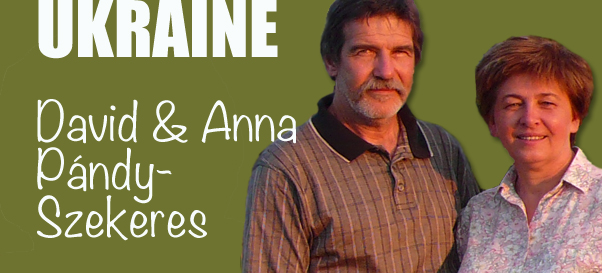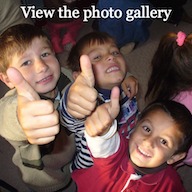 Dianna is the sixth of thirteen children born to Emma Horvát and her husband in the Roma encampment at the northern edge of the town of Nagydobrony (Ukraine). Of the thirteen children, four attended the local school for Roma children, established by the Reformed Church of the sub-Carpathian Ukraine, while others went to the town’s school. Dianna was already in her thirteenth year when she appeared at the little schoolhouse for the very first time in the autumn of 2007.
Dianna is the sixth of thirteen children born to Emma Horvát and her husband in the Roma encampment at the northern edge of the town of Nagydobrony (Ukraine). Of the thirteen children, four attended the local school for Roma children, established by the Reformed Church of the sub-Carpathian Ukraine, while others went to the town’s school. Dianna was already in her thirteenth year when she appeared at the little schoolhouse for the very first time in the autumn of 2007.
 While her other brothers and sisters were enrolled in school when they were young, Dianna and her brother were not, as both were living with special challenges. Dianna’s brother is deaf and mute and Dianna has a hearing impairment of greater than ninety-five percent. Although her parents were aware of Dianna’s difficulty from a very early age, they did not have the means to do anything about it. Neither parent had any education or gainful employment. Despite receiving a subsidy from the state’s social services for the two children, there was never enough money to go around. And there were of course many mouths to feed, so any income which could be acquired was rapidly exhausted in the family’s on-going struggle for survival. Consequently, Dianna never received the medical attention or hearing aid she needed and was reduced to spending her early years at home.
While her other brothers and sisters were enrolled in school when they were young, Dianna and her brother were not, as both were living with special challenges. Dianna’s brother is deaf and mute and Dianna has a hearing impairment of greater than ninety-five percent. Although her parents were aware of Dianna’s difficulty from a very early age, they did not have the means to do anything about it. Neither parent had any education or gainful employment. Despite receiving a subsidy from the state’s social services for the two children, there was never enough money to go around. And there were of course many mouths to feed, so any income which could be acquired was rapidly exhausted in the family’s on-going struggle for survival. Consequently, Dianna never received the medical attention or hearing aid she needed and was reduced to spending her early years at home.
The special school’s missionary-director told Dianna that she could learn to read, write and count. And so Dianna, who used lip-reading to understand what was being said to her, made the decision to attend classes.
 For the next five years Dianna hardly missed a day of school and poured her energy into learning as much as she could. It was not an easy task. She made painstaking progress, but the teachers provided her with the assistance she needed and her persistence was rewarded. She learned how to count to fifty, identify all the letters of the alphabet and read a combination of at least three of these letters together. She also learned to write the letters, although she was never able to compose words on her own. Instead, she copied words in her very careful handwriting and felt the appropriate sense of accomplishment.
For the next five years Dianna hardly missed a day of school and poured her energy into learning as much as she could. It was not an easy task. She made painstaking progress, but the teachers provided her with the assistance she needed and her persistence was rewarded. She learned how to count to fifty, identify all the letters of the alphabet and read a combination of at least three of these letters together. She also learned to write the letters, although she was never able to compose words on her own. Instead, she copied words in her very careful handwriting and felt the appropriate sense of accomplishment.
It was in her speaking ability that she made the most progress, having advanced from not knowing how to say anything on her very first day of school to being able to communicate freely. Even though her pronunciation was not always perfect, she was happy to have learned to speak. Like her classmates, she also learned something of the Ukrainian language and was able to recite short poems which she had memorized.
Dianna very much liked being in school. She liked her teachers and easily befriended other children. She particularly enjoyed art class and drawing, her favourite subjects being children, flowers and hearts, all of which she arranged nicely in her compositions. She liked to dress well and to paint her nails. She was good-natured and generally healthy.
Dianna is nineteen years old now and still living with her parents. Because of her schooling, she has a much brighter future ahead of her.


